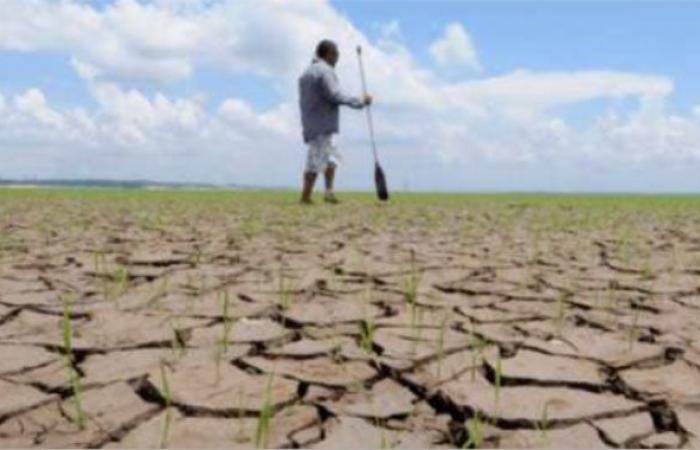The Kingdom is making significant progress in sustainability. He has been involved in this aspect for several years. In this sense, the combined report of the 5th national commission and the 1st biennial report on transparency has just been highlighted. This report presents in detail the progress made by the Kingdom in terms of transparency, access to information and accountability of the various stakeholders involved in this area.
Morocco continues its commitment to achieving its climate objectives. Indeed, the combined report of the 5th national commission and the 1st biennial report on transparency has just been unveiled, marking an essential step in this process. Morocco has put in place several national strategies and plans to achieve its climate objectives. The said report cites, for example, the Long-Term National Low Carbon Strategy (SNBC-LT), the Nationally Determined Contribution (CDN 2.0 updated in 2021) and the CDN 3.0 currently being developed. “The Kingdom has also strengthened its climate governance framework and put in place a range of sectoral strategies and plans, as part of a proactive, participatory and equitable approach. Due to its positioning in Africa, Morocco highlights the importance of awareness and regional and international cooperation to strengthen the capacities of Moroccan society to face the challenges of climate change,” notes the said document. And added: “Morocco continues to advocate for better support and assistance for developing countries, which suffer disproportionately from the effects of global warming, while seeking to be an example for other nations on the African continent,” emphasizing that the combined report of the Fifth National Communication on Climate Change and the first biennial report on Morocco’s transparency (CN5 and RBT1) is part of this dynamic of transformation. According to this document, the Kingdom submitted its updated Nationally Determined Contribution (NDC) to the UNFCCC in June 2021 in response to international commitments under the Paris Agreement and in accordance with its article 4. “Morocco An unconditional GHG emissions reduction target of 18.3% is set compared to the level projected for 2030 in the reference scenario. With greater international financial support, Morocco could achieve, in a conditional scenario, a reduction of 45.5% (+27.2%),” underlines the said report, noting also that it is important to mention that the version update of the CDN revised its mitigation objective upwards, from 42% (CDN 1.0 of 2015) to 45.5% (CDN 2.0 of 2021). This document also explains that as part of the preparation of the combined CN5-RBT1 report, monitoring of the implementation of the various unconditional and conditional measures was carried out. “This process, collaborative and transparent, was marked by broad participation from key stakeholders of the updated CDN,” explains the said document adding that two types of indicators were considered. They concern indicators specific to mitigation measures, making it possible to deduce the reductions achieved by measure and indicators specific to sectors of activity, providing the reductions in emissions achieved by sector. “It appears that all the mitigation measures implemented until 2022, within the framework of the updated CDN, allowed an effective reduction in emissions of 13,854.9 Gg eq. CO2. This reduction corresponds to the difference between the emissions forecast according to the baseline and those recorded in the 2022 inventory. It represents approximately 93.1% of the unconditional objective set for this year, thus confirming Morocco’s compliance with its non-binding intermediate objective in 2022,” notes the same report. According to the same source, the Kingdom has made significant progress in adapting to climate change in recent decades. “This progress is the result of a clear strategic vision and proactive policies aimed at strengthening the country’s resilience to climate hazards. Morocco has thus integrated the climate dimension into its national and sectoral development plans, ensuring that adaptation actions are at the heart of its priorities. These efforts demonstrate a strong commitment to sustainable adaptation, aimed at protecting populations and ecosystems while supporting resilient socio-economic development in the face of climate challenges,” argues the same source. Furthermore, the vulnerabilities facing the country require better local planning focused on climate change and aligned with national strategies and plans, better awareness of local communities, particularly in rural areas, which lack information and capacity. to adapt to climate impacts, coordination between public and private actors with a view to channeling efforts and organizing the actions carried out, or even greater and more accessible financial resources to meet persistent challenges.
This is the title of the box
An essential document for identifying challenges
Challenges : The said report aims to “exhaustively present the progress made by the Kingdom in terms of transparency, access to information and accountability of the various stakeholders concerned. It constitutes an essential tool for evaluating the effectiveness of the policies put in place, identifying the challenges to be overcome and setting clear objectives for the years to come,” we can read from this document which recalls that Morocco, a country with environmental challenges growing, is actively engaged in the fight against climate change as a national and international priority. In fact, the country has made the ecological transition an essential component of its sustainable development policy due to the challenges posed by climatic phenomena, such as prolonged droughts, heat waves, recurring floods and rising water levels. Wed. “Morocco has thus adopted a series of ambitious initiatives to mitigate the effects of climate change while supporting its socio-economic development. One of Morocco’s flagship actions in this area is its strong commitment during COP22, which was held in Marrakech in 2016,” the same source would like to recall, specifying that on this occasion the Kingdom reaffirmed its support for the Paris Agreement and is committed to strengthening its resilience and reducing its greenhouse gas (GHG) emissions while pursuing ambitious climate policies.





